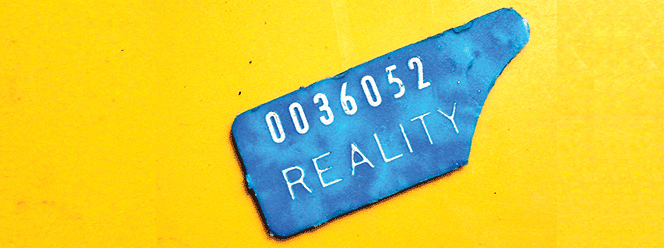
by Tara Joyce | Dec 22, 2015 | My Journey | What's On My Mind

I love this time of year as people all around the world are celebrating for many reasons. Collectively, it is indeed a very special and sacred time. Whatever festival of light you personally choose to celebrate, may it fill you with love and light, and may the new year bring you much inner peace, joy, and prosperity.
I am so grateful for you! Merry Christmas!

by Tara Joyce | Dec 4, 2015 | Personal Branding

It’s About Sharing.
While the web is a powerful tool for developing our personal brand, it’s important to remember that the web isn’t primarily a medium for information, marketing, or sales. It’s a place for people to meet, talk, create, disagree, rant, and love.
In a similar vein, authentic marketing is about creating conversation and connection. You cultivate this by sharing what you care about, and what you know.
Putting this understanding together, that the web is a medium to connect with people, and marketing is a means for creating connection, we can conclude personal branding is about using the resources you have available to share your authentic signal, your perspective of the world, and trusting your right people will connect with the unique value your expression creates.
Four other things I think I know about personal branding are:
1. It’s a table for two.
2. The more value in your signal, the stronger it will be.
3. Your point of view matters.
4. There is no demand for your message.
photo credit : Lena

by Tara Joyce | Nov 27, 2015 | Self/Business Growth

The messenger brings with them a message that is not really their own. It has been given to them, to deliver to you.
If you don’t like their message, if you don’t want to receive what they’re sharing, you may feel angry with them. You might want to shoot the messenger. But consider, is it the message you don’t like, or is it the person delivering it? There is a difference.
If it is the message you disagree with, take a moment before you shoot the messenger. Consider that your disagreement with their message is not necessarily a reflection of them, it is more a reflection of you. In seeing the messenger as the source of the problem, you aren’t seeing the difference between the message you are receiving, and the person delivering it. There is a distinction. The message is what triggers you, and the messenger is simply a deliverer of that trigger.
We are so much more than the messages we (consciously and unconsciously) share with others, and we are so much more than our emotional triggers. In recognizing yourself as both a giver and receiver of these potentially triggering messages, you share in the responsibility of knowing this emotional truth. We are all messengers, we all have value to share, and yet we can not be defined by this role and other people’s reactions to it. Our work is to be responsible for how we deliver our messages, and how we receive the other messengers in our lives. Working to know our triggers, we come to fully embrace our role as messengers, as we learn to distinguish the value of the messages — and the messengers — in our lives.
photo credit: David Seibold

by Tara Joyce | Nov 11, 2015 | Self/Business Growth

We, as humans, have a tendency to use our mind to negate our emotions. We use our mind as a tool to abandon how we feel.
I know, personally, I often use my mind to abandon my negative feelings, especially when they are directed at someone I love. In these moments, I’d rather pretend the feelings aren’t there… than explore why they are. The result of doing this, of locking up my sensitives in my logical mind, is that I disown my feelings and my emotional needs.
For some of us, we negate our feelings or emotional needs because we feel the expression of them is dangerous. Our emotions feel too vulnerable and the sharing of them feels to risky. Rightfully, risks are present when we share our most vulnerable self — but hiding our feelings from others is far more dangerous. For it leads us to mask our feelings, not only for others, but from our self. Rather than feel what we feel, we learn to abandon ourselves emotionally. We learn to negate what we feel and to lock it up in our mind. This lack of emotional self-awareness, and this mental overemphasis, further disconnects us from our self — and others.
We owe it to our emotional self to break our cycle of self-abandonment.
Emotional self-abandonment may feel safer — but it is no less painful than our own emotional truth — and it is all the more detrimental. For in not being present to our selves, we become slightly lost.
However, by acknowledging our logical desire to negate our feelings, we begin to break this cycle. Simply in seeing our abandonment, we cease our pattern of turning our back on our feelings. For recognizing our neglect enables us to be present to our emotional self once again, and within this awareness, we find we no longer need to leave any part of ourselves out again.
photo credit: gingher

by Tara Joyce | Oct 27, 2015 | My Journey | What's On My Mind, Self/Business Growth

Despite how we talk about it, reality isn’t one thing. One stream. One truth. Reality is defined and designed by you, the individual. And, by design, you get to decide how “real” you want your reality to be.
You are given the possibility, and the imperative, of being able to bring into reality the things that are truly real, and truly healing for you.
If you decide that your reality is full of lies and half-truths—or even a casual ignoring of the truly real—then this is your reality. Your detachment from your truth is a critical aspect of your reality.
What is real anyway? Perhaps what’s truly real is what feels most like our authentic truth.
This is my desire: for anything other than my truth to be the uncomfortable place. I want to learn to sit comfortably uncomfortable in the beauty and messiness of my truth. I want to feel that anything less than it is a trap I am creating for myself. For I know — and have learned — inevitably, the truth will catch up with me. I can’t outrun it, though I can deny it. Yet no matter where I look, it will still be there.
The denying of our truth adds pressure and pain to our lives. It’s the pressure to re-frame everything; to re-frame our reality so that it painfully fits into the limited perspective we’ve deemed acceptable. It’s a carefully crafted noose that will eventually hang us.
Instead, why not bring into reality the things that are truly real, and truly healing for you? Trust it’s your imperative as its designer.
photo credit: Alison J-B










